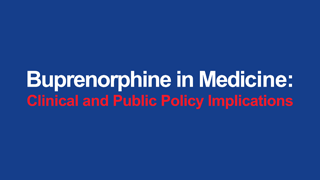Modafinil: Is it ready for prime time?
DOI:
https://doi.org/10.5055/jom.2006.0022Keywords:
modafinil, reticular activating system, psychostimulantsAbstract
Psychostimulants have been used to treat many symptoms associated with advanced cancer. The primary role of psychostimulants in such cases is the treatment of symptoms such as cancer-related fatigue, opioid-induced sedation, depression, and cognitive dysfunction associated with malignancies. These uses for psychostimulants came after approval for treatment of disorders such as attention deficit disorder. Modafinil, a new psychostimulant, is following a similar path after its approval for use in attention deficit disorder in 1998. Modafinil has been used to treat fatigue associated with neurodegenerative disorders such as multiple sclerosis and amyotrophic lateral sclerosis. It is now being increasingly used for cancerrelated symptoms targeted by psychostimulants. Preliminary evidence from literature review suggests that modafinil is efficacious in improving opioid-induced sedation, cancer-related fatigue, and depression. There is no evidence to support its use in the treatment of cognitive dysfunction related to cancer or to support its having analgesic properties. Well-designed, randomized, controlled clinical trials are still needed to further elucidate the precise role of this drug in the care of patients with cancer. Specifically, large placebo-controlled trials with modafinil must be conducted in patients with cancer, with specific attention paid to pain control, depression, cognitive function, and adverse effects.References
Price CS, Taylor FB: A retrospective chart review of the effects of modafinil on depression as monotherapy and as adjunctive therapy. Depress Anxiety. 2005; 21: 149-153.
Rammohan KW, Rosenberg JH, Lynn DJ, et al.: Efficacy and safety of modafinil (Provigil) for the treatment of fatigue in multiple sclerosis: A two centre phase 2 study. J Neurol Neurosurg Psychiatry. 2002; 72: 179-183.
Carter GT, Weiss MD, Lou JS, et al.: Modafinil to treat fatigue in amyotrophic lateral sclerosis: An open label pilot study. Am J Hosp Palliat Care. 2005; 22: 55-59.
Bastuji H, Jouvet M: Successful treatment of idiopathic hypersomnia and narcolepsy with modafinil. Prog Neuro psychopharmacol Biol Psychiatry. 1988; 12: 695-700.
US Modafinil in Narcolepsy Multicenter Study Group: Randomized trial of modafinil for the treatment of pathological somnolence in narcolepsy. Ann Neurol. 1998; 43(1): 88-97.
US Modafinil in Narcolepsy Multicenter Study Group: Randomized trial of modafinil as a treatment for the excessive daytime somnolence of narcolepsy. Neurology. 2000; 54: 1166-1175.
Boutrel B, Koob GF: What keeps us awake: The neuropharmacology of stimulants and wakefulness-promoting medications. Sleep. 2004; 27: 1181-1194.
Moruzzi G, Magoun HW: Brain stem reticular formation and activation of the EEG. 1949. J Neuropsychiatry Clin Neurosci. 1995; 7: 251-267.
Edley SM, Graybiel AM: The afferent and efferent connections of the feline nucleus tegmenti pedunculopontinus, pars compacta. J Comp Neurol. 1983; 217: 187-215.
Chou TC, Bjorkum AA, Gaus SE, et al.: Afferents to the ventrolateral preoptic nucleus. J Neurosci. 2002; 22: 977-990.
Lu J, Greco MA, Shiromani P, et al.: Effect of lesions of the ventrolateral preoptic nucleus on NREM and REM sleep. J Neurosci. 2000; 20: 3830-3842.
Martynska L, Wolinska-Witort E, Chmielowska M, et al.: The physiological role of orexins. Neuro Endocrinol Lett. 2005; 26: 289-292.
Thorpy M: Current concepts in the etiology, diagnosis and treatment of narcolepsy. Sleep Med. 2001; 2: 5-17.
Homsi J, Walsh D, Nelson KA: Psychostimulants in supportive care. Support Care Cancer. 2000; 8: 385-397.
Ferraro L, Antonelli T, O’Connor WT, et al.: Modafinil: An antinarcoleptic drug with a different neurochemical profile to damphetamine and dopamine uptake blockers. Biol Psychiatry. 1997; 42: 1181-1183.
Chemelli RM, Willie JT, Sinton CM, et al.: Narcolepsy in orexin knockout mice: Molecular genetics of sleep regulation. Cell. 1999; 98: 437-451.
Wong YN, King SP, Laughton WB, et al.: Single-dose pharmacokinetics of modafinil and methylphenidate given alone or in combination in healthy male volunteers. J Clin Pharmacol. 1998; 38: 276-282.
Wong YN, Simcoe D, Hartman LN, et al.: A double-blind, placebo-controlled, ascending-dose evaluation of the pharmacokinetics and tolerability of modafinil tablets in healthy male volunteers. J Clin Pharmacol. 1999; 39: 30-40.
Cephalon prescribing information: Provigil (modafinil) tablets. West Chester: Cephalon, Inc., 1999.
Robertson P Jr, Hellriegel ET, Arora S, et al.: Effect of modafinil at steady state on the single-dose pharmacokinetic profile of warfarin in healthy volunteers. J Clin Pharmacol. 2002; 42: 205-214.
Robertson P Jr, Hellriegel ET, Arora S, et al.: Effect of modafinil on the pharmacokinetics of ethinyl estradiol and triazolam in healthy volunteers. Clin Pharmacol Ther. 2002; 71: 46-56.
Le Cacheux P, Charasse C, Mourtada R, et al.: Gelineau syndrome in a patient with renal transplantation. Evidence of cyclosporine-modafinil interaction. Presse Med. 1997; 26: 466.
Bruera E, Fainsinger R, MacEachern T, et al.: The use of methylphenidate in patients with incident cancer pain receiving regular opiates. A preliminary report. Pain. 1992; 50: 75-77.
Bruera E, Chadwick S, Brenneis C, et al.: Methylphenidate associated with narcotics for the treatment of cancer pain. Cancer Treat Rep. 1987; 71: 67-70.
Webster L, Andrews M, Stoddard G: Modafinil treatment of opioid-induced sedation. Pain Med. 2003; 4: 135-140.
Sarhill N, Walsh D, Nelson KA, et al.: Methylphenidate for fatigue in advanced cancer: A prospective open-label pilot study. Am J Hosp Palliat Care. 2001; 18: 187-192.
Bruera E, Driver L, Barnes EA, et al.: Patient-controlled methylphenidate for the management of fatigue in patients with ad vanced cancer: A preliminary report. J Clin Oncol. 2003; 21: 4439-4443.
Morrow GR, Gillies LJ, et al.: The positive effect of the psychostimulant modafinil on fatigue from cancer that persists after treatment is completed. ASCO Annual Meeting Abstract. 2005; 8012.
Dalal S, Melzack R: Potentiation of opioid analgesia by psychostimulant drugs: A review. J Pain Symptom Manage. 1998; 16: 245-253.
Massie MJ: Prevalence of depression in patients with cancer. J Natl Cancer Inst Monogr. 2004; (32): 57-71.
Rozans M, Dreisbach A, Lertora JJL, et al.: Palliative uses of methylphenidate in patients with cancer: A review. J Clin Oncol. 2002; 20: 335-339.
Fava M, Thase ME, DeBattista C: A multicenter, placebocontrolled study of modafinil augmentation in partial responders to selective serotonin reuptake inhibitors with persistent fatigue and sleepiness. J Clin Psychiatry. 2005; 66: 85-93.
DeBattista C, Doghramji K, Menza MA, et al.: Adjunct modafinil for the short-term treatment of fatigue and sleepiness in patients with major depressive disorder: A preliminary double-blind, placebo-controlled study. J Clin Psychiatry. 2003; 64: 1057-1064.
Morita T, Otani H, Tsunoda J, et al.: Successful palliation of hypoactive delirium due to multi-organ failure by oral methylphenidate. Support Care Cancer. 2000; 8: 134-137.
Gagnon B, Low G, Schreier G: Methylphenidate hydrochloride improves cognitive function in patients with advanced cancer and hypoactive delirium: A prospective clinical study. J Psychiatry Neurosci. 2005; 30: 100-107.
Mulhern RK, Khan RB, Kaplan S, et al.: Short-term efficacy of methylphenidate: A randomized, double-blind, placebo-controlled trial among survivors of childhood cancer. J Clin Oncol. 2004; 22: 4795-4803.
Meyers CA, Weitzner MA, Valentine AD, et al.: Methylphenidate therapy improves cognition, mood, and function of brain tumor patients. J Clin Oncol. 1998; 16: 2522-2527.
Randall DC, Viswanath A, Bharania P, et al.: Does modafinil enhance cognitive performance in young volunteers who are not sleep-deprived? J Clin Psychopharmacol. 2005; 25: 175-179.
Jasinski DR: An evaluation of the abuse potential of modafinil using methylphenidate as a reference. J Psychopharmacol. 2000; 14: 53-60.
Downloads
Published
How to Cite
Issue
Section
License
Copyright 2005-2024, Weston Medical Publishing, LLC
All Rights Reserved












